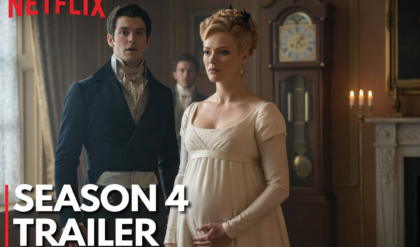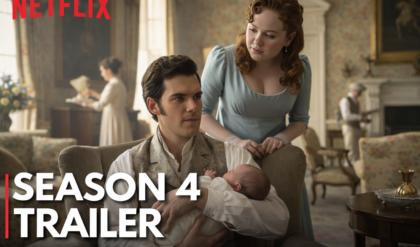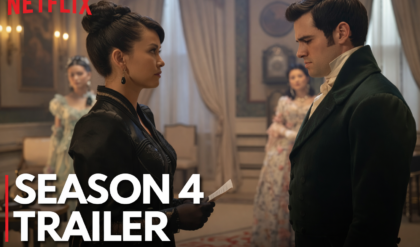Netflix’s Adolescence, the four-part British drama that’s dominated streaming charts since its March 13, 2025, premiere, isn’t just a technical marvel with its single-take episodes—it’s a storytelling juggernaut that’s left audiences reeling. Co-created by Stephen Graham and Jack Thorne, the series follows 13-year-old Jamie Miller (Owen Cooper), arrested for stabbing his classmate Katie Leonard (Emilia Holliday), and the shattering aftermath for his family. But what’s flown under the radar amid its 100% Rotten Tomatoes acclaim is a pivotal creative shift: the ending we saw wasn’t the one originally planned. Director Philip Barantini and the team swapped out a scripted conclusion for something rawer, more visceral—and infinitely more meaningful. Here’s why Adolescence changed its final moments, what the original ending entailed, and the profound deeper meaning that emerged from the switch.
The Original Ending: A Different Kind of Closure
In the initial script, Episode 4—set 13 months after Jamie’s arrest on Eddie’s 50th birthday—was meant to end with a quieter, more symbolic act. After Jamie calls from prison to announce he’s pleading guilty, shattering his family’s fragile hope, Eddie (Stephen Graham) was to enter his son’s bedroom, climb into Jamie’s bed, and pull the covers over himself. This moment, as Barantini explained to Netflix Tudum, was designed as an “avatar” for Jamie—an emotional stand-in for the boy Eddie could no longer hold. The act would’ve mirrored a parent tucking in a child, a gesture of love frozen in time, suggesting Eddie’s attempt to reclaim a lost innocence or shield himself from the pain.
It was a poignant idea, rehearsed and polished during pre-production. “It was great,” Barantini told Esquire, reflecting on how the scene played out in practice. But as filming loomed, something nagged at him. The original ending felt too passive, too neat for a series that thrives on immediacy and emotional chaos. Adolescence isn’t about tidy resolutions—it’s a gut-punch portrait of a family imploding under society’s failures. Climbing into bed risked softening that edge, offering a comfort the Millers don’t deserve and the story doesn’t earn. So, Barantini pivoted, and the teddy bear became the linchpin of a new, devastating finale.
The New Ending: A Teddy Bear’s Silent Scream
What we got instead is a scene that’s become iconic: Eddie, alone in Jamie’s room, clutching his son’s teddy bear, sobbing uncontrollably before tucking it into bed and whispering, “Sorry, son, I should’ve done better.” The camera pulls back, Katie’s voice (Emilia Holliday singing Aurora’s “Through the Eyes of a Child”) swells, and the screen fades to black. It’s a moment of pure, unfiltered despair—Eddie’s breakdown amplified by a last-minute twist from Graham’s real-life family, who hid photos and notes in the wardrobe to “break him open,” as Barantini revealed.
Why the change? Barantini felt the teddy bear offered something tangible Jamie had touched, something Eddie could “hold onto” that embodied his son’s lost childhood. “This is the only thing that’s malleable, that Jamie’s cuddled,” he told Tudum. Unlike the original, where Eddie internalized his grief under the covers, the new ending externalizes it—Eddie’s apology isn’t just to Jamie but to himself, to Katie, to a world he couldn’t fix. Graham made it his own, improvising the line that’s now seared into viewers’ minds, turning a prop into a vessel for a father’s regret.
The Deeper Meaning: Innocence Lost, Accountability Found
The shift from bed to bear isn’t just stylistic—it’s a thematic earthquake. The original ending leaned on nostalgia, a parent retreating to a child’s safe space, implying a longing for “what was.” But Adolescence isn’t about looking back—it’s about facing forward, confronting the wreckage of a boy’s choices and a family’s blind spots. The teddy bear, a relic of Jamie’s innocence, becomes a mirror: it reflects not just what he once was, but what he—and society—failed to protect. Eddie tucking it in isn’t comfort; it’s a futile gesture, a burial of hope as Jamie’s guilty plea locks him away.
This aligns with the series’ core question: “Why?” Jamie’s murder of Katie, fueled by manosphere radicalization and Katie’s cyberbullying, isn’t a mystery to solve—it’s a tragedy to dissect. The original ending risked diluting that by suggesting Eddie could retreat from the “why.” The new one forces him to sit in it, amplifying the show’s critique of modern boyhood. As Vulture noted, Adolescence “chases the question of ‘why?’ and finds little more than despair.” The bear embodies that despair—a child’s toy stained by adult consequences.
Katie’s voice in the final song deepens this. Originally by Aurora, “Through the Eyes of a Child” mourns a lost “childlike soul.” Having Holliday sing it wasn’t planned from the start—her vocal talent emerged late in production, and Barantini seized it. “Her presence is always there,” he said, ensuring Katie haunts the narrative beyond her death. The song’s inclusion, paired with the bear, shifts the ending from Eddie’s private grief to a public reckoning—two children lost, one to violence, one to prison, both to a world that didn’t intervene.
Why It Changed: A Creative Gut Check
Barantini’s decision wasn’t impulsive—it was a gut response to the story’s soul. The single-take format demanded authenticity; stopping at “great” wasn’t enough when “real” was possible. “I just felt there’s something about him tucking in Jamie’s teddy,” he told Esquire. Graham agreed, telling RadioTimes, “We wanted the journey to finish where it began”—in Jamie’s room, where innocence morphed into rage. The original ending, while poetic, risked theatricality; the new one embraced rawness, a hallmark of Graham’s work from This Is England to Boiling Point.
Real-life inspiration played a role too. Graham drew from UK knife crime tragedies—cases like Ava White (2021) and Brianna Ghey (2023)—to ground the series in reality. The original ending might’ve softened that edge, letting viewers escape the harshness those cases reflect. The teddy bear scene, bolstered by Graham’s family’s secret notes (“We love you. We’re so proud of you”), pushed it further, blending art and life. “It got me to the core,” Graham admitted, ensuring Eddie’s breakdown wasn’t acted—it was lived.
The Bigger Picture: A Warning Amplified
The change magnifies Adolescence’s warning to parents and society. Jamie’s room, once a “microcosm” of safety (as Graham called it), is a digital minefield—phones and forums radicalizing kids under adults’ noses. The original ending might’ve suggested retreat; the new one demands confrontation. Eddie’s “I should’ve done better” isn’t just personal—it’s collective, implicating schools, tech giants, and us all. The Guardian reports knife crime among UK teens has doubled in a decade—17.3% of offenders are 10-17. The bear’s burial is a plea: see the signs, act before it’s too late.
It also reframes masculinity. Critics who claim Adolescence attacks men miss the nuance—Jamie’s not a villain by nature but a boy failed by a culture that equates worth with dominance. The original ending could’ve been misread as pity; the new one, with Eddie’s rage and regret, shows masculinity’s fragility and cost. Forbes notes the manosphere’s grip on teens—13% of UK boys admire Tate, per BBC. The bear isn’t just Jamie’s—it’s every boy lost to that void.
Why It Matters
By March 31, 2025, Adolescence has sparked school workshops and parliamentary debates—PM Keir Starmer even watched it with his teens. The ending’s shift from bed to bear turned a good story into a cultural touchstone. It’s not about closure—it’s about accountability, a mirror for a world letting kids slip through cracks. As Thorne told The Independent, “It’s preventable.” The original ending mourned that loss quietly; the new one screams it, ensuring we can’t look away.
So, why did Adolescence change its ending? Because “great” wasn’t enough—it had to be true. The teddy bear, Katie’s voice, Eddie’s tears—they’re not just a finale; they’re a reckoning. Rewatch it. You’ll see the deeper meaning wasn’t just explained—it was felt.





